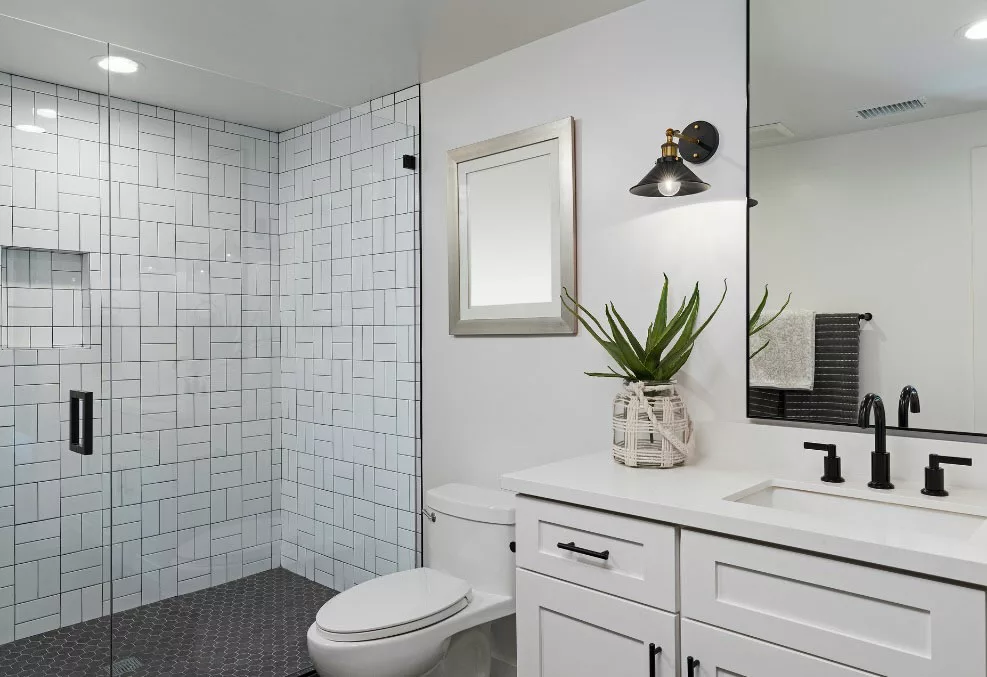
Regardless of the reason for visiting, it is important to ensure that your bathroom remains a pleasant space. However, there are instances where the bathroom can emit strong sewage-like odors, even when it is not in use. But what exactly causes these unpleasant smells, and more importantly, how can you effectively address them? Let’s explore the common sources of this issue and discuss preventive measures to prevent your bathroom from smelling like sewage.
The Actual Danger of Sewage Smells
When the smell of sewage starts coming up through your bathroom, it can even be enough to turn your stomach. However, that smell is more than just bothersome to your senses. It can actually cause harm.
Within your sewage line are some toxic gasses, including carbon monoxide, ammonia, hydrogen sulfide, methane and others. These gasses can cause a variety of symptoms, including:
- Nausea
- Vomiting
- Headaches
- Suffocation
This means that if you detect the smell of sewage, you need to identify its source and resolve the issue quickly. If you cannot find the source yourself, call a professional plumber to take care of it before it becomes more than just an odor. If you’re anywhere in the San Antonio area, rely on the experts from Beyer Plumbing to resolve the problem for you.
A Dry P-Trap
When you look under your sink, you will see a curved pipe. This is called the P-trap. Many people think the purpose of this is to catch things that should not go down the drain, a wedding ring, for example. However, these do a lot more than just catch loose items.
The P-trap maintains water in the bend of the pipe. This creates a type of seal that keeps the gasses out of your home. If the P-trap dries out or the water gets low enough, it allows the gasses to pass up the drain. There are a number of reasons your P-trap may lose the water in the bend, including:
- Irregular use
- A hole in the pipe
- Too much air movement in the pipes
- Something absorbent caught in the pipe
If you suspect a dry P-trap, turn the water on and let it run for about 10 minutes. This will allow enough water to fill the trap to reestablish the water seal. If that fails and you still suspect a problem, it might be time to reach out to a plumber.
Shower Drains
Even if you shower regularly, your shower drain may be the source of that dreadful smell in your bathroom, but not because of sewage fumes leaking past a seal in the pipe. Rather, the simple act of showering will start generating some of these fumes if you do not clean your drain regularly.
Hair, dead skin, and residual shower gels collect in the pipes. Over time, these will begin to decay, which will create some of these noxious gasses. The best way to prevent this is to clean your drain regularly. While this is something anyone can easily do, it can be a disgusting job and maybe too much for some.
One easy way to clean your drain is by using a tool like a plastic drain clog removal stick. This is great if you suspect there is a lot of hair clogging the drain but not so good for removing product residue.
For this, boil two cups of water and then mix in two cups of white vinegar. Carefully remove the drain cover, and slowly pour the mixture down the drain. Next, slowly pour two cups of baking soda into the drain, and let it work for two hours. This will create a bubbling action that will work on dissolving the sediment.
Once you have done this, flush the drain with boiling water again. Consider running some hot water for three or four minutes after the boiling water.
Problems With Your Vent Pipe
One of the ways your bathroom controls odors is through a ventilation pipe. If this pipe becomes clogged or damaged, gasses can leak out into your bathroom rather than escaping into the air outside.
Unfortunately, it can be challenging to distinguish between a clogged drain and a clogged ventilation pipe just by the smell. It can also be dangerous to get on your roof to inspect your vent pipe. If you suspect this may be the issue, call a professional plumber to come out and determine the root cause.
Faulty Wax Ring
No one wants to think of their toilet as having a problem, but there is a basic malfunction that can certainly cause nasty odors. Under your toilet, there is a sewage drain pipe. Between the pipe and the base of the toilet, a wax ring is installed to seal everything properly.
If that wax ring gets damaged, it could allow gasses to come up through the pipe and out into your bathroom. It may also allow some fluid from your toilet to leak out, potentially creating a mess around the base or ruining your subfloor.
You can easily pick up a new wax ring at any hardware store. However, getting your toilet disconnected and remounted properly can be quite tricky. To prevent further damage, you may want to consider hiring a professional plumber to handle this repair.
Overflow Growth
Many sinks have an overflow hole, which allows water to drain quickly if the sink gets full, preventing it from overflowing. However, if you do not fill the sink frequently, this additional drain can develop grime and mildew, leading to an unpleasant smell.
The easiest way to prevent this is to clean your sink routinely, including scrubbing out the overflow hole. If you notice a smell coming from this area, mix half a cup of warm water and half a cup of white vinegar. Use a turkey baster or something similar to put this into the overflow hole. The vinegar has a strong smell that mitigates sewage odor. It also neutralizes the bacteria that cause the odor.
Clogged Drains
You have at least three different drains in a full bathroom: the toilet, a sink, and a shower or tub. If any of these drains develop a clog and are draining slowly, it can lead to the development of that sewage odor. Toilets are relatively easy to understand because our waste products give off gasses like methane.
Sinks are similar to showers in that the drain may collect hair, personal care residue, and mucous from rinsing your mouth. All of this will begin to decay over time, leading to the same smells that can come up through your sewage line. The best treatment is to clean out your drains regularly. If you do have a clog, call a professional plumber rather than resorting to a commercial drain cleaner. Not only are these dangerous, but they can also exacerbate the problem.
If you are in San Antonio, TX or the surrounding areas, turn to the Beyer Plumbing team. Our licensed plumbers can inspect your drains, pipes, and toilet to find the source of the problem and fix it quickly. We also offer a full spectrum of plumbing services, including water heater installation and repair, shower and tub installation, and water quality system installation and service. Contact us today to schedule a plumbing consultation and to help rid your bathroom of foul odors.


